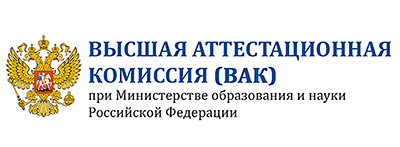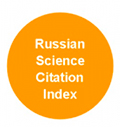Legal and moral aspects of induced abortion and family planning in Russia: results of an expert survey conducted in 1996
Abstract
The article presents the results of a survey of experts conducted in January-February 1996 in order to identify the opinions of experts on fundamental issues related to birth control in Russia. This study was part of the research project "Family Planning and Public Health Policy in Russia: The Transition from Abortion to Contraception in a Changing Society”, carried out by the Transnational Family Research Institute (Moscow) in 1995-1997. In total, 89 experts were interviewed, representing academic communities in various fields of knowledge (geography, demography, history, psychology, medicine, philosophy, and economics), public health administrators and practitioners, State Duma deputies, representatives of federal and regional executive authorities and priests. The survey program covered the issues of the legitimacy and moral acceptability of abortion, an assessment of the current legislation on induced abortion, an assessment of people’s acceptance of the regulation of reproductive function and of the most acceptable methods of birth control in the context of fertility trends in the country, an assessment of the activities of NGOs advocating the limitation and prohibition of voluntary abortion and the possible consequences of changes in legislation in relation to abortion and family planning. The overwhelming majority of the experts supported the unconditional right of women to decide the fate of their pregnancy. According to experts, a legislative ban on abortion and restricting the right of women to terminate pregnancy if they wish would not solve the problem of low fertility, and could only have negative consequences in terms of increasing the level of criminality in the country and worsening the health of many women. A quarter of a century later, the questions raised in the study of the mid-1990s remain relevant.
Downloads
References
Bodrova V.V. (1995). Seksual'naya moral' i reproduktivnoe povedenie naseleniya [Sexual Moral and Reproductive Behavior of the Population]. Ekonomicheskie i sotsial'nye peremeny: monitoring obshchestvennogo mneniya. Informatsionnyy byulleten' [Economic and Social Change: the Monitoring of Public Opinion], 3: 25-27. (In Russ.)
Borisov V., Sinelnikov A., Arkhangelsky V. (1997). Aborty i planirovanie sem'i v Rossii: pravovye i nravstvennye aspekty (opros ekspertov) [Abortion and Family Planning in Russia: Legal and moral aspects (expert survey)]. Voprosy statistiki [Statistical issues], 3: 75-81. (In Russ.)
Denisov B.P, Sakevich V.I, Jasilioniene A. (2012). Divergent Trends in Abortion and Birth Control Practices in Belarus, Russia and Ukraine. PLoS ONE 7(11): e49986. DOI: 10.1371/journal.pone.0049986
Kochergina E. (2017). Kak obshchestvo otvechaet na neotraditsionalistskuyu politiku gosudarstva (na primere otnosheniya k abortam) [How society responds to the neotraditionalist policy of the state (on the example of the attitude to abortion)]. Vestnik obshchestvennogo mneniya [Bulletin of Public Opinion], 1-2 (124): 141-151. (In Russ.)
Kukhianidze S. (1996). Eto dolzhen znat' kazhdyy [Everyone should know this]. Moskovskaya Pravda, February 20. (In Russ.)
Melnikov A. (1995). Problema [The Problem]. Nezavisimaya gazeta, October 19. (In Russ.)
Philipov D., Andreev E., Kharkova T., Shkolnikov V. (2004). Induced Abortion in Russia: Recent Trends and Under-Reporting in Surveys. European Journal of Population, 20: 95–117. DOI: https://doi.org/10.1023/B:EUJP.0000034499.24658.7a
Popov A.A. (1995а). Aborty v Rossii [Abortions in Russia]. Chelovek [Human Being], 1: 113-119. (In Russ.)
Popov A.A. (1995b). Demonopolizatsiya politiki planirovaniya sem'i v Rossii [Demonopolization of family planning policy in Russia]. Sem'ya v Rossii [Family in Russia], 3-4: 109-119. (In Russ.)
Rossiyskiy statisticheskiy ezhegodnik / Sbornik [Russian Statistical Yearbook]. M: Goskomstat, 1996. (In Russ.)
Sakevich V.I., Denisov B.P. (2019). Reproduktivnoe zdorov'e naseleniya i problema abortov v Rossii: noveyshie tendentsii [The Latest Trends in Reproductive Health and the Problem of Abortion in Russia]. Sotsiologicheskie issledovaniya [Sociological Studies], 11: 140-151. (In Russ.) DOI: 10.31857/S013216250007457-5
Temkina A.A. (2013). Sovety ginekologov o kontratseptsii i planirovanii beremennosti v kontekste sovremennoy biopolitiki v Rossii [Gynecologists’ Advices on Contraception and Pregnancy Planning in the Context of Contemporary Biopolitcs in Russia]. The Journal of Social Policy Studies, 11(1): 7-24. (In Russ.) Retrieved from https://jsps.hse.ru/article/view/3445
Troitskaia I., Avdeev A., Badurashvili I., Kapanadze E., Tretjakova V. (2009). Étude comparative des pratiques contraceptives: France, Géorgie, Lituanie et Russie. Revue d’études comparatives Est-Ouest, 40, 3–4, Septembre–Décembre, 241–272. DOI : 10.4074/S0338059909003088
Vishnevsky A.G. (ed.) (1996). Naselenie Rossii 1995 [Population of Russia]. Tretiy ezhegodnyy demograficheskiy doklad. M.: Tsentr demografii i ekologii cheloveka. (In Russ.)
Vishnevsky A.G., Sakevich V.I., Denisov B.P. (2017). The contraceptive revolution in Russia. Demograficheskoe obozrenie [Demographic Review], English selection 2017: 86-108. DOI: https://doi.org/10.17323/demreview.v4i5.8570
























